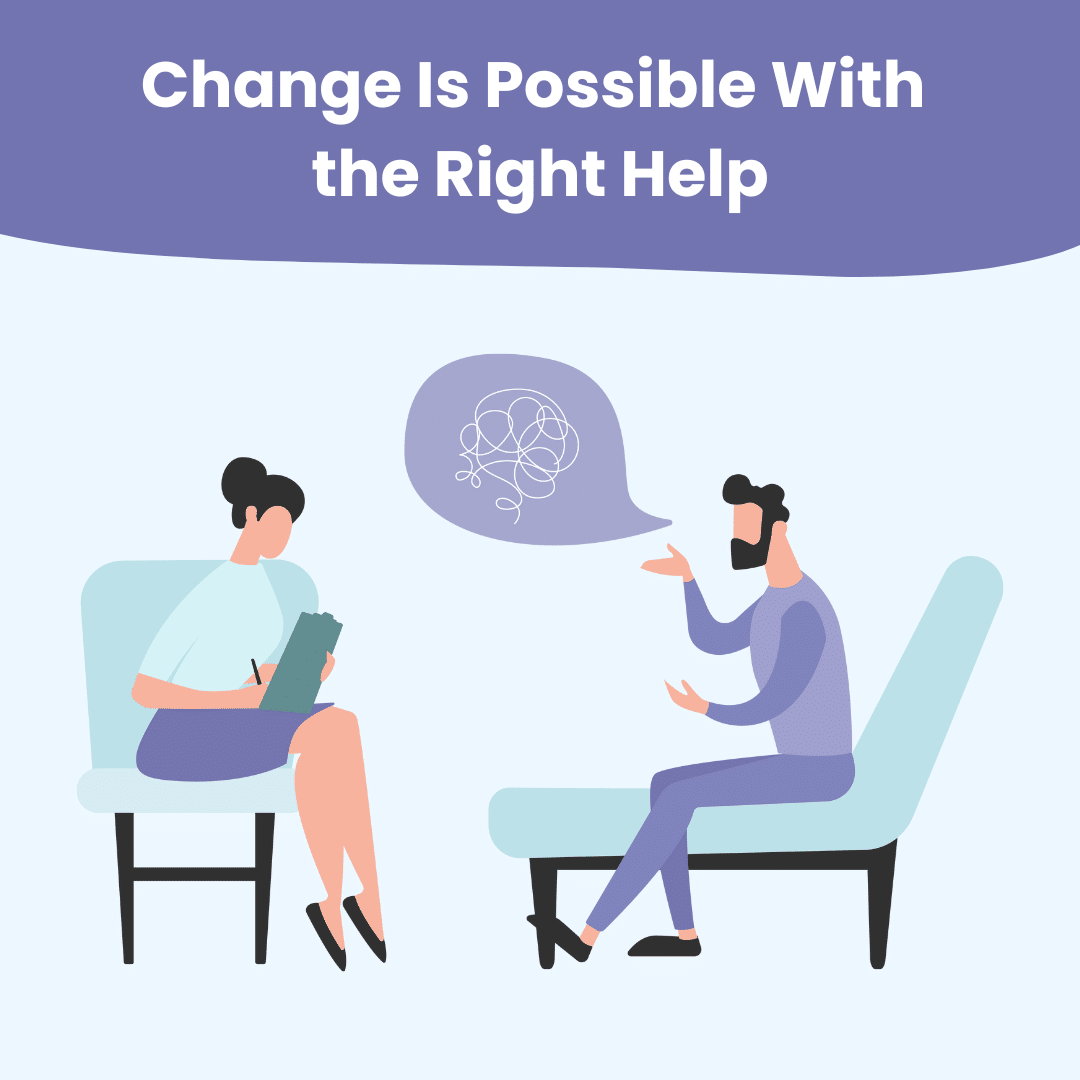
- Updated on 22 October 2025
77% of employees struggle with mental health issues due to work-related stress. That’s more than half of the world.
Research shows time and again that issues like stress, anxiety, and anger have doubled in intensity from after 2020.
What’s worse, these emotional strains at work are also seeping into other areas of life. Stressed workers are having difficulty maintaining relationships. People who are burned out notice significant physical health issues.
It’s high time we asked: What are we doing about this? How do we protect employees from stress?
While the triggers for work stress are undoubtedly complex, they often occur due to organisational, societal, and individual factors.
This article explores what an EAP is and how it can help employees with work and personal issues.
This Article Contains:
What is an Employee Assistance Program (EAP)?
An employee assistance program provides subsidies, free counselling sessions, and mental health services to improve employee well-being.
At TYHO, our EAP services include:
- Online and in-person talk therapy services
- Empathy circles (ie small group discussions or group therapy)
- Seminars
- Webinars
- Hands-on workshops
- On-site crisis support
When an employee is struggling with their mental health, it can affect work performance, team dynamics, and overall revenue.
But here’s the thing: employees are humans too, and are just as susceptible to psychological distress as anyone else.
Hence, it is often the companies’ responsibility to ensure that they’re providing timely intervention to protect employee well-being.
EAP is not only about an individual; it’s about the culture and core values of the organisation.
How happy do you want your team to be if you run a business? What standards do you hold of them? It goes without saying that if the standards are high, the support might also have to be of high quality.

4 Ways EAP Supports Employees with Work-Related Issues
Work stress can be managed, yes. However, for people who are struggling with it daily, the problem can be huge.
Imagine waking up every morning exhausted. You look at your screen yet cannot form coherent thoughts. The deadlines for important projects are near, but you’re physically unable to get started.
That’s how burnout works: It doesn’t allow you to function until you learn how to recover.
And that’s something Therapists can help with. The impact of counselling increases when the sessions are subsidised and available within a minute.
EAP services can help you stay afloat at work if you’re an employee. It can help you thrive.
If you’re a company, you’re investing in employee mental health for double the profit, like improved performance, positive work culture, and even increased revenue.
So, now the question is: what exactly can EAP help with?
1) Managing Workplace Stress and Burnout
When employees are stressed, they can’t work at their full potential. However, many may hesitate to seek professional help due to stigma or lack of resources.
If your company has our EAP services, we make access to high-quality sessions so easy that employees don’t have to think twice before making an appointment.
TYHO Therapists can address workplace stress by:
- Providing tools to identify stress triggers at work
- Teaching time management skills
- Equipping employees with mindfulness techniques to manage feelings of anxiety
- Teaching how to set and maintain boundaries
- Guiding employees to recover from burnout
2) Resolving Workplace Conflicts
Workplace conflicts are one of the top reasons a team falls apart. Co-workers having a problematic dynamic may lead to:
- Delay in deliverables
- Reduction in the quality of work
- Increase in absenteeism
- Mind plays and discrimination
Here’s an example of a workplace conflict:
Let’s consider two colleagues called Sara and Max. They work on the same team and often collaborate on multiple projects.
On the one hand, Sara prefers to be organised about her work and has everything planned ahead of time. On the other hand, Max prefers to work whenever they have a boost of motivation.
Over time, Sara starts to feel annoyed and frustrated with Max due to the delay in collaboration. Sara’s constant reminders make Max feel like they’re being micromanaged.
As the tension between the two grows, Sara and Max begin to argue, stop communicating with each other, and escalate the problem to HR.
Most of us have experienced something like this during work, haven’t we? However, as people who are already busy with work, we may not have the time to resolve the conflict.
HR can contact their EAP provider and book an empathy circle or on-site support when they notice conflicts such as the above. The immediate and proactive response to the problem makes employees feel supported and cared for.
3) Promoting Work-Life Balance
When do you log out of work? Do you even have the energy to do things after you log out?
Most of us struggle to manage work and our personal lives. We wake up, work, eat, and go back to sleep.
Amidst this grind, it’s hard to form an identity for ourselves. It’s hard to maintain hobbies or relationships with people outside of work.
At times, employees may not even realise that this lack of balance is a problem. As they continue to live this way, burnout or stress may creep up slowly and steadily in a few years.
Instead of waiting for things to get worse, seeking an EAP intervention can help prevent major issues.
During EAP sessions, Therapists at TYHO may help employees:
- Identify why they’re feeling stressed and provide practical self-care tools to protect their mental health
- Realise what habits and behaviours are serving them positively and equip them with tools to maintain the positive habits
- Find joy and happiness outside of work
- Regain interest and passion in diverse activities
As employees live a rich life outside of work, their performance at work may also improve in unexpected ways. Because when people feel better, they work better.
4) Improving Job Performance
Employee assistance programs are a great way to improve job performance and productivity.
For example, let’s consider Anne, who lacks a career goal or purpose. Her work drags on throughout the day, but nothing gives her satisfaction.
Interestingly, Anne also receives a yearly bonus, but her state of mind remains the same. She dreads going to work and leaves the office feeling empty and unfulfilled.
In this case, let’s assume the company is doing everything right. Anne receives a yearly bonus, a good salary, a great work team and culture, and exciting projects. But how did everything go wrong?
Sometimes, a lack of direction in a career can severely affect an employee’s well-being and performance at work. A company can’t do much about this directly. But investing in an EAP service provides immense space for employees to set professional goals, regain their passion for work, and improve their performance.
In fact, research shows that EAPs increase staff performance by up to 25%. It’s a foolproof solution.

3 Ways EAP Supports Employees with Personal Issues
Not everyone can effectively manage work, family, relationships, and personal lives. Issues from all sides can overwhelm and cause stress and anxiety.
Moreover, all aspects of our lives are interconnected. Issues at work can affect relationships. Conflicts with family can result in absenteeism at work. The pressure to perform can lead to poor physical health. Nothing exists in isolation.
Hence, seeking EAP services means that employees can also work on their personal issues. Let’s look at the 3 ways EAP improves personal mental health.
1) Mental Health Support
Issues such as social anxiety, depression, or mood swings can affect an employee’s work performance.
If someone is socially anxious, they may avoid using opportunities like public speaking that could potentially improve their career trajectory.
Similarly, a person who is depressed may find it hard to do any tasks outside of the ones they were assigned. In such cases, the person may avoid taking proactive steps or initiatives at work.
TYHO Therapists can equip employees with tools to:
- Manage their emotions
- Build confidence and motivation
- Avoid procrastination at work or in personal life
- Reduce symptoms of anxiety
- Improve a person’s thinking patterns
- Reduce maladaptive behaviours
2) Relationship & Marriage Counselling
A person struggling with relationship issues may struggle to excel at work. Couples counselling is also a part of the EAP service that TYHO offers.
Therapists can help employees:
- Improve communication and emotional bond
- Resolve conflicts around finances or work-life balance
- Navigate new changes (eg moving in together)
- Regain their initial spark and affection towards each other
As employees improve their relationships, their moods may inevitably change, leading to better engagement and performance at work.

3) Family Counselling
Like how relationship and personal issues affect work, so does family conflict.
For employees living with their family members, learning how to set boundaries, be assertive, and balance their time becomes all the more important.
For example, imagine you’re working remotely from your house. You have busy work days, but since you’re physically present at home, your parents expect you to spend more time with them.
This expectation may make you feel like your family does not take your work seriously. How do you handle such conflicts?
Talking to a family Therapist means that you can learn how to:
- Communicate effectively with your parents
- Draw clear work and family boundaries
- Navigate interpersonal conflicts
- Better understand and cater to your and your family’s needs
How to Encourage Employees to Use the EAP
Employees can have the best work environment in place if only they know how to use the resources available.
You can encourage your colleagues or employees to use EAP in many ways. Below are some ideas:
- Talk about it often: Mention EAP during work hours and share your experience of talking to a Therapist if you are comfortable doing so. Repeatedly talking about EAP can help reduce stigma and normalise the need for seeking professional help.
- Keep it visible: Share the EAP collaterals, presentations, and resources as often as possible. TYHO regularly sends a newsletter about work stress and workplace mental health. You can subscribe to the newsletter and forward it to your team as and when you receive it.
- Reassure employees about confidentiality: Most employees hesitate to seek help through the company due to questions about confidentiality. At TYHO, all sessions are encrypted end-to-end, and no one, including our admin and HR of companies, is aware of the discussions that take place during a counselling session. Make it clear to employees that no personal information is shared with anyone.
- Show proof of benefits: At TYHO, HR can access an employee insights dashboard to view how many employees have booked therapy sessions, what issues they seek help with, and so on. The session usage is a great way to understand how employees find our EAP beneficial. If you are part of the HR team, you can share the statistics and data with your team to reinforce the benefits of EAP services.
Key Takeaways
- EAP services are essential to build a happy and productive work environment.
- Talk Your Heart Out provides multiple EAP services, such as talk therapy, group therapy, workshops, seminars, and on-site crisis support.
- EAP services can help employees with work-related issues such as stress, burnout, procrastination, lack of work-life balance, and poor job performance.
- EAP can also address personal issues like anxiety, depression, and interpersonal conflicts with partners, friends, or family members.
- Companies and individuals can encourage employees to use EAP by discussing it, sharing the benefits, showing proof of the results, and reassuring employees about confidentiality.
Book a demo on our platform if you would like to invest in an EAP service for your company.
If your company doesn’t provide an EAP service, take the first step today and talk to one of our expert TYHO Therapists.

Related Articles
Latest Articles
Recent Posts
- Understanding Employee Assistance Programs in Singapore (And Why Your Company Needs One)
- A Therapist’s Guide to Setting Boundaries with Parents
- Anger Management in Singapore: Top 6 Benefits
- Individual vs Group Counselling in Singapore: What’s Right for You?
- Thinking of Switching Your Therapist in Singapore? Read This First


